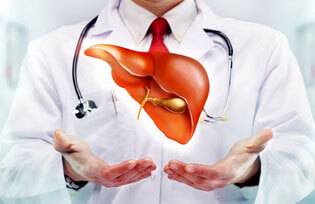Cardiology Treatments

What is Cardiology?
A heart transplant is a surgical procedure in which a diseased or damaged heart is replaced with a healthy heart from a departed patron. This procedure is generally reserved for cases with end- stage heart failure or other serious heart conditions that cannot be effectively treated with other styles.
Before a heart transplant can be performed, the case must suffer a thorough evaluation to determine if they’re a suitable seeker for the procedure. This evaluation may include a medical history and physical test, blood tests, imaging studies, and other individual tests to assess the function of the heart and other organs.
still, they will be placed on a waiting list for a patron heart, If a case is supposed a suitable seeker for a heart transplant. The delay time for a patron heart can vary depending on a number of factors, including the case’s blood type, size, and medical urgency.
Once a suitable patron heart becomes available, the case will suffer the heart transplant surgery. During the surgery, the case’s diseased or damaged heart is removed and replaced with the healthy patron heart. The new heart is connected to the case’s blood vessels, and the case is placed on a ventilator to help them breathe while the heart begins to beat on its own.
After the surgery, the case will be nearly covered in the sanatorium for several weeks to insure that the new heart is performing duly and to manage any complications that may arise. The case will also need to take specifics to help rejection of the new heart and to manage any other underpinning medical conditions.
While a heart transplant can be a life- saving procedure for cases with end- stage heart failure or other serious heart conditions, it’s a complex and parlous surgery that requires careful evaluation and ongoing medical operation. Cases who suffer heart transplants must be committed to following a strict medical authority and making life changes to insure the long- term success of the transplant.
Symptoms
Heart conditions can beget a wide range of symptoms, which can vary depending on the specific condition and the inflexibility of the complaint. Some common symptoms of heart conditions include
casket pain or discomfort This is one of the most common symptoms of heart complaint. The pain or discomfort may feel like pressure, miserliness, or a squeezing sensation in the casket.
briefness of breath Feeling breathless, especially during physical exertion, may be a symptom of heart complaint.
Fatigue Feeling exorbitantly tired or fatigued, indeed after getting enough rest, may be a symptom of heart complaint.
Dizziness or flightiness Feeling dizzy or lightheaded, especially when standing up, may be a symptom of heart complaint.
Heart pulsations Feeling like the heart is contending, skipping a beat, or fluttering may be a symptom of heart complaint.
Swelling lump in the legs, ankles, bases, or tummy may be a symptom of heart complaint.
Nausea or puking Feeling squeamish or vomiting may be a symptom of heart complaint, especially in women.
Cold sweat A unforeseen onset of cold sweat, especially accompanied by other symptoms, may be a symptom of a heart attack.
It’s important to note that not all heart conditions beget symptoms, and some people may witness symptoms that are different from those listed over. also, some symptoms of heart complaint may be analogous to symptoms of other conditions, similar as anxiety orindigestion.However, it’s important to talk to your healthcare provider to determine the cause and admit applicable treatment, If you witness any unusual symptoms.
Eligibility
To be eligible for a heart transplant, a patient must meet certain criteria and undergo a thorough evaluation process to determine if they are a suitable candidate for the procedure. Some of the factors that are taken into consideration during the evaluation include:
Diagnosis: The patient must have a diagnosis of end-stage heart failure or another serious heart condition that cannot be effectively treated with other methods.
Age: Patients who are younger than 65 years old are typically preferred for heart transplant surgery, although age alone is not a disqualifying factor.
Overall health: The patient’s overall health and medical history are taken into consideration, including the presence of other medical conditions such as diabetes, kidney disease, or liver disease.
Lifestyle: Patients who are willing and able to make lifestyle changes such as quitting smoking, adhering to a heart-healthy diet, and participating in regular exercise are more likely to be considered suitable candidates for a heart transplant.
Psychological evaluation: A psychological evaluation may be conducted to assess the patient’s ability to cope with the emotional and psychological aspects of the heart transplant process.
Support system: Patients must have a strong support system in place, including family and friends who can assist with post-operative care and provide emotional support.
Financial resources: Heart transplant surgery and ongoing medical management can be expensive, and patients must have the financial resources or insurance coverage to pay for these costs.
The specific criteria and evaluation process for heart transplant candidacy may vary depending on the hospital and medical center where the procedure is being performed. It’s important for patients to work closely with their healthcare team to determine if a heart transplant is a suitable option for their individual needs and circumstances.


